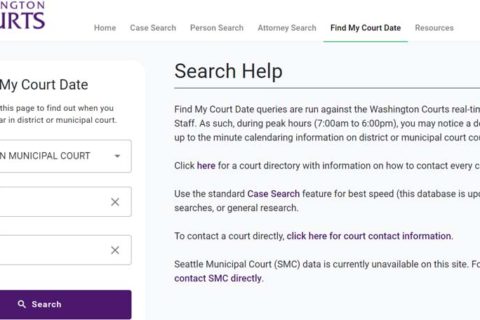A criminal complaint is an official document which charges the defendant with a crime. In several states, this criminal complaint is referred to as “information.” Both are accusations, and the defendant remains innocent until really proven guilty. You are able to file a criminal complaint against someone, but what happens if a criminal complaint is filed against you? Well, let us discuss this case on this page.
What Is a Criminal Complaint?
A criminal complaint is what usually starts the official criminal case against a defendant. It means that the government has a legitimate reason for believing the defendant committed a crime. Occasionally, a complaint will follow an arrest, but not always. Police will be able to arrest a person without any charges ever being formally filed in the case. In other situations, a person probably receives a complaint without ever having been arrested. Regardless of which comes first, a complaint or arrest, it is the complaint that officially starts the criminal case and turns a suspect into a defendant.

What Happens if a Criminal Complaint Is Filed Against You?
What happens after a prosecutor files a criminal complaint frequently will depend on whether the defendant is “in custody” or “out of custody.” Or if police have not made an arrest, probably the filing of the complaint results in an arrest warrant for the defendant.
For in-custody defendants (those sitting in prison awaiting bail or trial), the law needs the prosecutor to bring the defendant before a judge within a day or two for the first appearance. If the defendant is out of custody (was not arrested or is free on bail), this first appearance might happen within several weeks. At the first appearance, the judge is going to inform the defendant of the charges in the criminal complaint.
The next steps will depend on the seriousness of the offense. However, no matter how serious the charges are, a criminal defendant must look for a private criminal defense attorney right away or ask the judge to appoint one at the first appearance.
Who Can File a Criminal Complaint?
Usually, a criminal complaint is filed by a prosecuting agency. Here is how it works:
Prosecutors File Complaints – Usually, the police arrest someone. Then, submit a report to the local prosecuting office with jurisdiction over the offense. In federal court, the United States Attorney is the prosecutor. State crimes are going to be filed by the prosecuting agency in charge that might be a county or city attorney, state prosecutor, district attorney, attorney general, or another title depending on the state and level of government.
Then, a prosecutor is going to review the police report and decide whether to file charges against the suspect. If the prosecutor responsible for the filing decision thinks there is enough evidence and the case is worth prosecuting, then the prosecutor’s office files a complaint with the court. In a lot of jurisdictions, the defendant is presented with the complaint at the first court appearance, frequently called an arraignment or initial appearance.
What Is in a Criminal Complaint?
The criminal complaint has to clearly inform the accused of the charges against them. Typically, the document has a caption at the top indicating:
-
- the court where the case is being filed.
- the party filing the complaint.
- the defendant.
Then, the criminal complaint includes some types of description of the accusations against the defendant, including the offense date, the criminal code citation, and description of the crime. Where there are many counts (charges), each charge will get its own number and paragraph or section. The bottom of the complaint usually has at least one signature line, for the person filing the complaint.
Can the Victims Press Charges or File a Criminal Complaint?
Contrary to what we see on TV, the victims do not make charging decisions. Usually, a victim will report or give an account of the crime to the police. However, it is the prosecutor who will create the final decision of whether to press or file the criminal charges.
Are There Time Limits to File Criminal Complaint?
Most states set limits on filing criminal complaints for avoiding prosecution of stale claims. Those time limits are referred to as statutes of limitations. If the prosecutor files charges after the time limit expires, then the defendant is able to ask the judge to dismiss the charges. Each state sets its time limits in the law. For example, a prosecutor probably has 3 years to file misdemeanor charges and 6 years to file felony charges. Usually, criminal charges for murder or sexual assault crimes can be filed at any time.
How to File a Criminal Complaint?
For those who want to file a criminal complaint, follow these steps below.
-
- At the first step, you must go to the police station in the city or town closest to where the incident or offense took place.
- After that, you must get a form. Then, fill out that form. The form will prompt you what happened. Remember that you have to fill out the form carefully because it will be part of your statement to the court. If you have trouble filling out the form, you are able to ask for help from the court’s Victim/ Witness Advocate (VWA).
- After you fill out the form, please give it to the clerk to file.
Also, you need to take a copy of the completed form to the court which is closest to where the incident or offense occurred, and complete an application for a criminal complaint. After the application form is filed with the court, then you have to attend the hearing. The defendant will be notified by mail. Both parties have to attend the hearing. Remember that the application must include the correct address of the defendant, so that they are able to be summoned to appear at the correct courthouse. If a correct address is not provided, then the hearing will not proceed. If the complainant does not appear at the hearing, then the application can be denied.

A bookworm and researcher especially related to law and citizenship education. I spend time every day in front of the internet and the campus library.





